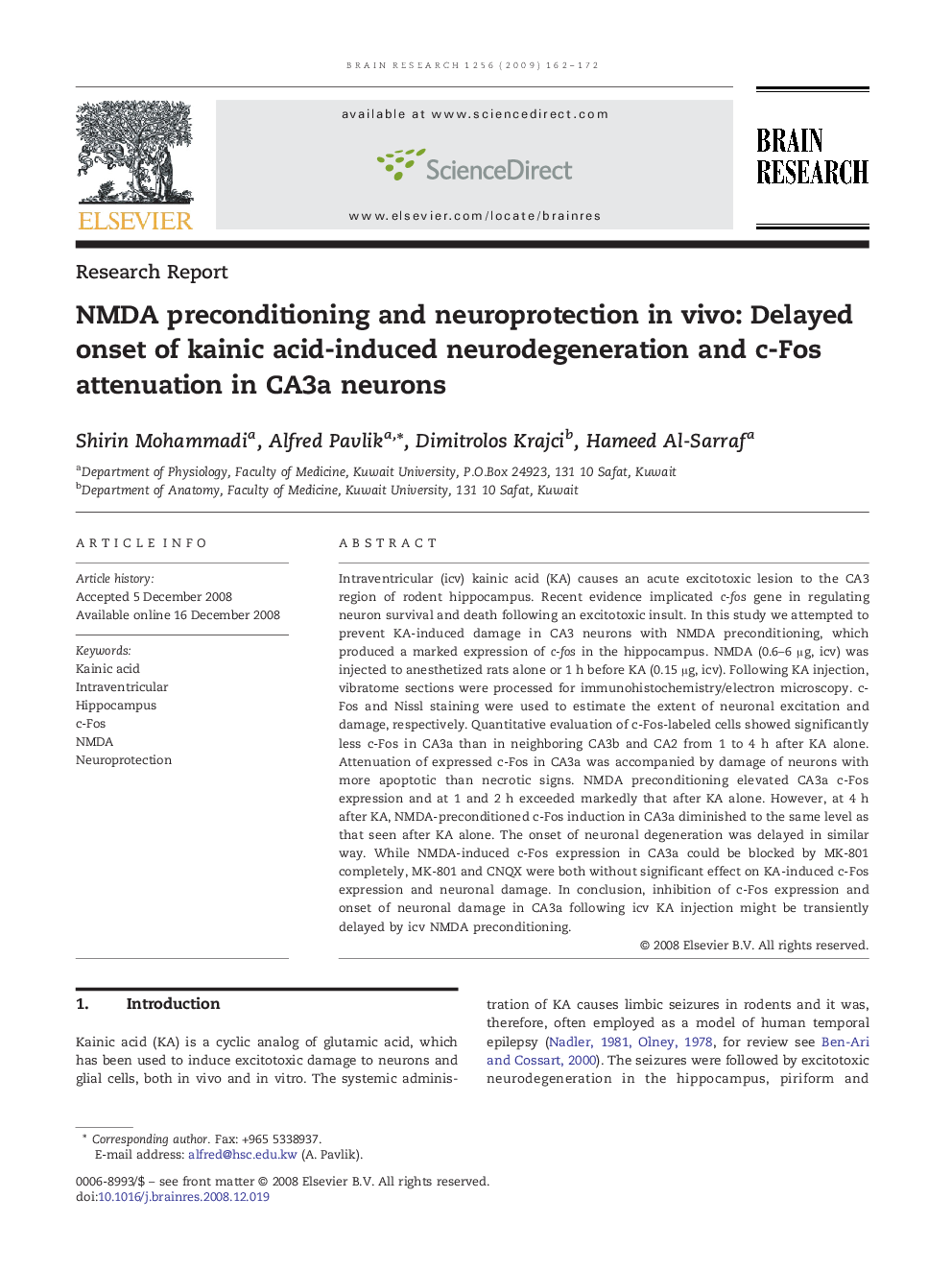| Article ID | Journal | Published Year | Pages | File Type |
|---|---|---|---|---|
| 4328638 | Brain Research | 2009 | 11 Pages |
Intraventricular (icv) kainic acid (KA) causes an acute excitotoxic lesion to the CA3 region of rodent hippocampus. Recent evidence implicated c-fos gene in regulating neuron survival and death following an excitotoxic insult. In this study we attempted to prevent KA-induced damage in CA3 neurons with NMDA preconditioning, which produced a marked expression of c-fos in the hippocampus. NMDA (0.6–6 µg, icv) was injected to anesthetized rats alone or 1 h before KA (0.15 µg, icv). Following KA injection, vibratome sections were processed for immunohistochemistry/electron microscopy. c-Fos and Nissl staining were used to estimate the extent of neuronal excitation and damage, respectively. Quantitative evaluation of c-Fos-labeled cells showed significantly less c-Fos in CA3a than in neighboring CA3b and CA2 from 1 to 4 h after KA alone. Attenuation of expressed c-Fos in CA3a was accompanied by damage of neurons with more apoptotic than necrotic signs. NMDA preconditioning elevated CA3a c-Fos expression and at 1 and 2 h exceeded markedly that after KA alone. However, at 4 h after KA, NMDA-preconditioned c-Fos induction in CA3a diminished to the same level as that seen after KA alone. The onset of neuronal degeneration was delayed in similar way. While NMDA-induced c-Fos expression in CA3a could be blocked by MK-801 completely, MK-801 and CNQX were both without significant effect on KA-induced c-Fos expression and neuronal damage. In conclusion, inhibition of c-Fos expression and onset of neuronal damage in CA3a following icv KA injection might be transiently delayed by icv NMDA preconditioning.
